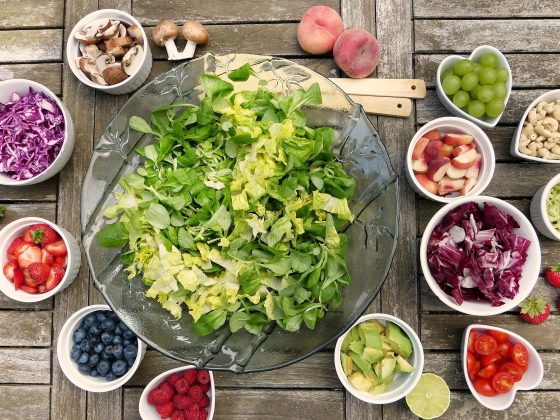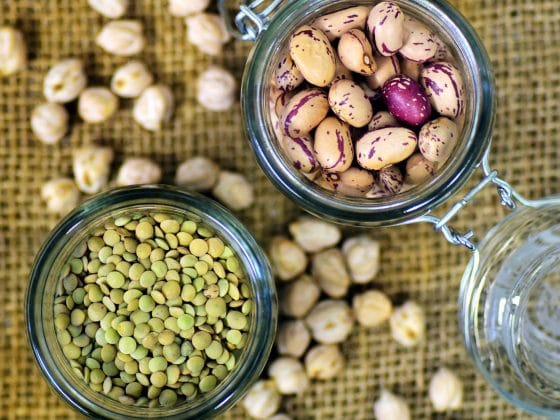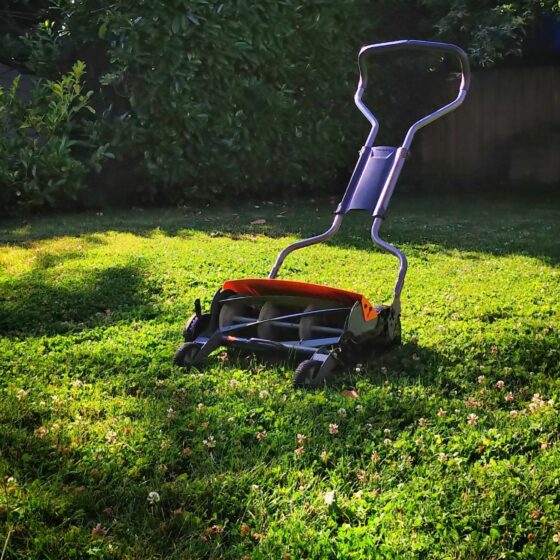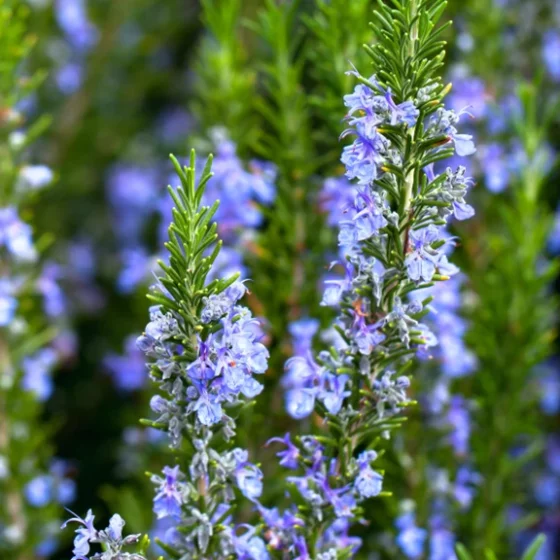Ever wonder what your healthier self is capable of doing? A vegetarian diet for beginners can provide the answer to that.
But let’s face it, every new beginning is difficult. The cravings, the inevitable planning, the additional shopping, and the cooking can make you relapse and miss out on a plethora of health benefits.
So, how can you make your road to vegetarianism as easy and bump-free as possible? What’s the good and bad that awaits you on the other side? Read all about it in this complete guide for aspiring vegetarians!
Vegetarian Diet Plan for Beginners: What Is It?
In short, vegetarians are people who adopt a strict diet that excludes anything meat derived for one of the following reasons:
- Ethical — in other words, fighting for animal rights or simply being against the slaughter of animals.
- Health-related reasons like food allergies and the prevention and treatment of certain diseases. Perhaps even the fact that transitioning to a vegetarian diet for beginners often makes people feel better (improved wellness, longer life span).
- Environmental reasons like limiting greenhouse gas emissions that arise from animal farming; for instance, the livestock industry emits about 18% of global greenhouse gases.
- Religious beliefs — Jainism, Mahayana, and Sikhism, for instance.
- Culture, tradition, and more.
Types of Vegetarian Diets
Most traditional cuisines have some vegetarian dishes, believe it or not. As a result, there are a lot of subtypes when it comes to this diet.
For example, you can find easy vegetarian Mediterranean diet recipes for beginners, traditional American veggie recipes, and so on.
You can even find quality meal delivery services that feature vegetarian menus; it’s the latest trend at the moment.
That said, let’s take a look at the different subcategories of this meat-free diet:
Standard Vegetarian Diets
Lacto-Ovo-Vegetarian Diet
When referring to a vegetarian diet, we usually have the lacto-ovo-vegetarian diet in mind, and for good reason too. Namely, this type is one of the more popular ones when transitioning to a vegetarian diet for beginners.
- Can consume dairy, eggs, vegetables, grains, legumes, nuts, and fruits.
- Avoids fish, seafood, and all meats.
Lacto Vegetarian Diet
- Can consume dairy, vegetables, grains, legumes, nuts, and fruits.
- Avoids eggs, seafood, fish, and all meats.
Ovo Vegetarian Diet
- Can consume eggs, vegetables, grains, legumes, nuts, and fruits.
- Avoids dairy, fish, seafood, and all meats.
Semi-Vegetarian Diets
Semi-vegetarian diets include the occasional consumption of meat. As such, they are the most popular vegetarian diet for beginners — hence why food delivery brands, such as Home Chef, offer both standard vegetarian and pescatarian menus.
Pescatarian Diet
- Can consume fish, seafood, dairy, eggs, vegetables, grains, legumes, nuts, and fruits.
- Avoids all kinds of meat apart from fish.
Pollotarian Diet
- Can consume poultry, fowl, dairy, eggs, vegetables, grains, legumes, nuts, and fruits.
- Avoids all kinds of meat apart from poultry and fowl.
Flexitarian Diet
Due to the casual inclusion of meats in this diet, it’s suitable for those looking to follow a gluten-free or even a ketogenic vegetarian diet plan for beginners. The reason being, it’s less restrictive — hence you’re less likely to develop nutritional deficiencies.
- Can consume dairy, eggs, vegetables, grains, legumes, nuts, and fruits.
- Can also consume tiny portions of different meats, fish, or seafood.
- Generally avoids excessive use of fish, seafood, red meat, poultry, and fowl.
Strict Vegetarian Diets
Vegan Diet
- Can consume vegetables, grains, legumes, nuts, and fruits.
- Avoids dairy, eggs, fish, honey, seafood, and different kinds of meat.
Combined Vegetarian Diets
Vegetarian Keto Diet
As previously mentioned, following a vegetarian keto diet, for beginners, might not be the best idea as it’s quite restrictive and therefore hard to get used to. Instead, it’s better to start off with a regular vegetarian diet first and then progress to a more ketogenic diet.
- Can consume dairy, eggs, vegetables, grains, legumes, nuts, and fruits.
- Avoids all meats, starchy vegetables, high-sugar fruits, sugary dairy drinks, sugar, honey, and other natural sweeteners.
Gluten-Free Vegetarian Diet
Think of a gluten-free diet as a pastry-, bread-, and meat-free diet. A good example would be the Mediterranean vegetarian diet meal plan, which, for beginners, is a good source of healthy and delicious recipes.
- Can consume dairy, eggs, vegetables, legumes, nuts, and fruits.
- Avoids all kinds of meat and grains.
Whole-Food Vegetarian Diet
This is one of the most efficient diets for weight loss, along with the ketogenic diet.
- Can consume dairy, eggs, grains, vegetables, legumes, nuts, and fruits.
- Avoids all kinds of meat, processed foods, snacks, and soft (sugary) drinks.
Low-Carb Vegetarian Diet
Just like the vegetarian keto diet plan for beginners, the low-carb vegetarian diet excludes all starchy vegetables and high-sugar fruits. Nevertheless, the macros are not as strict as with the keto diet for instance.
- Can consume dairy, eggs, vegetables, grains, legumes, nuts, and fruits.
- Avoids all kinds of meat, starchy vegetables, high-sugar fruits, sugary dairy drinks, sugar, honey, and other natural sweeteners.
Going Vegetarian — What You Need to Know
Cutting off your supply of meat and other animal-derived foods and products can be tricky at first. Namely, you’ll have to adapt to a whole new lifestyle, manage expenses, anticipate cravings, and tirelessly answer the endless flow of questions from friends and family.
Here are a few tips on how to prevent shocking your gut, wallet, and family in order to make a smooth transition to a more vegetarian diet.
Tips for Going Vegetarian
Define Your Goal
What drives you to renounce the pleasures of delicious chicken wings, fish, or juicy steaks and rely solely on dairy, eggs, and plant-based products to get your nutrients? The answer to this question will not only keep you motivated but will also help you choose between different vegetarian subtypes.
For example, if you are trying to lose weight, you’ll also need to cut down on all high-carb foods. Hence, a low-carb vegetarian diet is the most optimal choice.
That said, the health benefits of going vegetarian are many. Yet, if your primary goal is to advocate for animal rights, then a vegan diet is the way to go.
Going vegan is also the better choice if you’re trying to lessen the symptoms of chronic inflammatory diseases.
On the other hand, if your goal is to simply cut back on saturated fats and harmful substances found in meat products, you should consider adopting a flexitarian diet.
Start Off by Gradually Eliminating Meat
In the beginning, balancing off the pros and cons of going vegetarian in your head entails a slow and painful transition (for some).
You first need to reduce and then eliminate meats and meat-based foods from your diet, starting from red meat, white meat, fish, and finally — seafood.
This will give you plenty of time to find suitable meat replacements and help your body adapt to a completely vegetarian diet.
Start Supplementing Straight Away
It’s no secret that restrictive diets can lead to nutritional deficiencies, so going vegetarian to lose weight can end up costing you more than you bargained for in terms of health complications.
Namely, there are many easily absorbable vitamins and minerals that you get from eating meats, which are necessary for proper bodily function. To compensate for these, you’ll need to find adequate replacements in natural food sources, fortified foods, or artificial supplements as soon as possible.
Seek Out Nutritious Recipes
To really reap the health benefits of going vegetarian you have to do a solid job of diversifying your meals. In other words, you need a well-balanced vegetarian diet that is rich in all the essential nutrients for proper bodily function; unless you want to get scurvy or an iron deficiency.
Fortunately, Factor 75 and similar food delivery services can help you achieve a nutrient-rich vegetarian alimentation without much fuss.
Avoid Heavily Processed Foods
Eliminating meat from your diet is a surefire way of staying healthy, but it certainly doesn’t stop there. Processed foods are yet another major health hazard.
Going vegetarian for beginners also entails staying clear of junk food and eating whole foods rich in nutrients.
Keep an Open Mind
A complete diet overhaul won’t necessarily make your grocery list shorter. On the contrary, keeping an open mind and trying out new foods and condiments is essential for keeping your vegetarian nutrition diversified and interesting; otherwise, you’ll just relapse and return to your old diet.
As every guide to going vegetarian will tell you, the secret to sustainably changing your diet is having the willingness to try out new foods and cooking methods.
Inform Family and Friends
Changing your diet can end up affecting people around you. For instance, becoming a vegetarian might mean canceling your family’s subscription to a food service meal plan.
You should be prepared to explain that, for example, Hello Fresh and other veggie-friendly food delivery services are now a better option for you.
Also having the support of family and friends will be of tremendous help during this arduous transition — hence why you should practice arguing the pros of going vegetarian even now.
Be Realistic
Going meat-free doesn’t automatically mean losing weight or becoming healthier. Other factors, such as carb intake, junk food, and food allergies and intolerances are also worth keeping in mind.
So, keep your hopes moderately high and focus on the long run.
Benefits of Following a Vegetarian Diet
If you want to start a vegetarian diet just for the sake of health benefits, you’ll love the following scientifically proven perks.
Vegetarians Have a Lower Mortality Rate
A study involving about 11,000 individuals found that a vegetarian diet is closely associated with a lower mortality rate.
With the way meat is processed nowadays, It’s not hard to understand why vegetarians have a better chance of experiencing old age.
From the cancer-inducing phosphates and by-products to the saturated fats — there are many reasons why the meat industry fails to offer healthy options. As a result, more and more people google how to start a vegetarian diet.
Reduces the Risk of Cancer
A recent observational study shows that vegetarians are at lower risk of developing cancer (by 10%, in fact) compared to meat-eaters.
Researchers pin this on the multitude of benefits from eating plants, like antioxidants, fibers, etc.
Plus, avoiding meat by-products altogether means a lesser intake of cancer-inducing substances.
A Vegetarian Diet Plan Improves Cardiovascular Health
One of the biggest veggie pros is eliminating most of the risks associated with cardiovascular diseases (heart disease, coronary artery disease, stroke, etc.)
In fact, numerous studies have proven positive changes in vegetarian newbies regarding major CVDs risk factors such as:
- hypertension
- cholesterol and triglycerides levels
- obesity
- sugar level regulation
Lowers Blood Pressure
Results from one study published in the Journal of Geriatric Cardiology revealed that sedentary vegans had lower blood pressure compared to those eating the typical Western diet.
No surprises here seeing how vegetarian diet recipes are full of beneficial oils and are generally low on saturated fats that block blood vessels.
That said, the most surprising find was that vegans actually beat endurance athletes in blood pressure results.
Lowers Harmful Fats in the Bloodstream
We all know that high LDL cholesterol is bad for the heart and circulatory system. Luckily for vegetarians, cholesterol is mostly found in red meat.
Nevertheless, full-fat dairy products are also abundant in cholesterol, so vegans do have an advantage when it comes to that.
What’s more, the foods that lower cholesterol levels make the basics of many vegetarian recipes. These include:
- oats, barley, whole grains
- beans
- nuts
- vegetable oils
- soy
- citrus fruits, and apples, strawberries
Studies also find that triglycerides — another CVDs factor responsible for coronary artery disease — are much lower in the bloodstreams of vegetarians and vegans compared to meat-eaters.
Additionally, if getting rid of harmful fats is your main goal, going vegan is definitely a better option.
Purple Carrot is one of the rare all-vegan meal delivery services that can help you make a successful transition to veganism without breaking a sweat.
Weight Loss
So, does going vegetarian help you lose weight? Yes! And a 2017 study confirms it. Namely, it leads to weight loss due to:
- Meat elimination — no meat means consuming less highly caloric saturated (bad) fats.
- Higher fiber intake helps digestion and promotes weight loss.
- Switching to a plant-based diet helps change your gut flora so beneficial bacteria take over the obesity-promoting ones.
- Given their nutrition profile, most vegetarian foods are also low-calorie foods.
That said, the vegan and ovo-vegetarian diets are known to have better weight loss results overall. This is mainly due to the avoidance of dairy products, which are more often than not high in fat content.
Makes Your Skin Glow
One effect that makes the vegetarian diet for beginners highly attractive, is better-looking skin. Many people experience a positive glow after the very first week of starting their vegetarian diet. Yet, for some, it might take longer.
Namely, skin health issues like acne, for example, are linked to bad insulin production; this hormone’s activity is boosted by most edible plants. And although we still don’t know it for sure, the plants’ polyphenols are probably the main “culprits” behind this benefit.
Helps the Regulation of Blood Sugar
The effect that plants have on sugar absorption and insulin regulation leads to fewer spikes in blood sugar levels.
Therefore, diabetics can benefit the most from eating vegetarian foods.
Boosts Energy Levels
Shedding off a few extra pounds and detoxing your body from meat can take a while, but the end result is definitely worth the wait.
Since fibers ease digestion, they put almost no strain on your gut. This will make you feel lighter and will provide a positive boost to your energy and focus.
Downsides of the Vegetarian Diet
Poorly constructed beginner vegetarian meals can do more harm than good to your overall health.
As is the case with so many diets that exclude certain food groups, vegetarianism may cause several nutritional deficiencies.
Therefore, from day one, you need to pay close attention to the following nutrients.
Proteins
Animal-derived and plant-derived proteins have different compositions. For example, some amino acids (building blocks of proteins) like isoleucine, lysine, methionine, threonine, and tryptophan are rarely found in a vegetarian diet plan.
So, despite the fact that many plants like legumes, nuts, and grains are rich in protein, you can still end up lacking specific types of proteins — hence why we recommend taking some protein supplements to balance things out.
Vitamin B12
Most meats, as well as seafood, are rich in vitamin B12, so you’ll need to compensate for it once you go vegetarian. Fortunately, there is a solid choice of vegetarian diet recipes rich in B12.
Preventing B12 deficiency means stopping serious health complications like anemia and neurological and hormonal issues.
Vitamin D3
It’s best to supplement D3 (Cholecalciferol) with pharmacy-bought supplements as it is rarely found in plants. Most of the D vitamin found in plants comes in the less effective D2 form.
One way to take care of your immune system and bone health can be done by consuming more D3-enriched dairy products.
Another approach to supplementing your diet with D3 is following vegetarian recipes that occasionally include seafood and fish, at least until a good substitute for D3 is found.
Vitamin A (Retinol)
Yes, vegetarians can become Vitamin A deficient, despite eating a bunch of carrots.
The reason? Well, unlike animal-derived vitamin A, which is more readily absorbed, our body has to convert plant constituents (like beta-carotene) to get the necessary amount of retinol.
If something impairs this process, we won’t be adequately supplied with this essential vitamin, thus hindering our immunity, reproduction, skin, and eyesight.
Calcium
Calcium deficiency is one of the main reasons why the vegetarian diet for beginners should include some dairy products. Although many plants contain calcium, most also contain chemicals that, in part, impair calcium absorption.
Iron and Zinc
You might include all the recommended plant sources of iron and still be iron deficient on a vegetarian diet. Similar to calcium, plant-based iron and zinc need a specific combination of vitamin C-rich foods to be effectively absorbed.
Carnitine, Carnosine, Creatine, Taurine
All of these nutrients are mainly found in meat, fish, and seafood. But don’t worry, supplements containing it are easy to come across.
What to Know Before Going Vegetarian?
Due to the many nutritional deficiencies, following a vegetarian diet is usually not recommended for those that are already prone to some nutritional deficiencies.
In fact, people that have such issues should consult with a healthcare professional before going veggie.
Here’s a list of things to watch out for:
- food allergies — gluten, soy, nut allergy, etc.
- nutritional deficiencies — B12, iron
- health conditions — anemia, irritable bowel syndrome (IBS), celiac disease
- mental health conditions like depression, anxiety, and eating disorders
What Is a Good Vegetarian Diet for Beginners?
Supplement List
Tryptophan-Rich Veggie Foods
- Refined white bread
- Milk
- Cheddar cheese
- Butternut squash seeds
- Algae
- Seaweed
- Soy and soy products
- Oatmeals
- Walnuts
- Leafy greens
- Potato
- Pumpkin seeds
- Cauliflower
- Mushrooms
- Cucumber
- Broccoli
- Peas
- Banana
- Chocolate
Protein-Rich Meat Replacements for Vegetarians
- Tofu, tempeh, and edamame
- Quinoa
- Amaranth
- Ezekiel bread
- Buckwheat
- Chia seeds
- Nutritional yeast
- Spirulina
- Hemp seeds
- Pita and hummus
- Rice and beans
- Peanut butter sandwich
- Mycoprotein (Quorn)
- Sea vegetables
B12 Rich Vegetarian Food List
- Fortified grains and cereals
- Fortified dairy products
- Nutritional yeast
- Algae
- Seaweed
- Mushrooms
- Tempeh
Veggie Foods Rich in Iron
- Legumes: kidney beans, lentils, and chickpeas
- Tofu
- Nuts: cashew
- Seeds: pumpkin, chia, linseed, hemp, and pumpkin
- Leafy green vegetables: kale
- Fruits: dried apricots and figs, raisins
- Grains: fortified breakfast cereal and quinoa
The Vegetarian Food List
The Standard Vegetarian Diet Includes
- Dairy
- Grains and whole grains
- Vegetables
- Fruits
- Legumes
- Nuts
- Seeds
- Herbs
- Spices
- Natural sweeteners
- Condiments
By default, all alcoholic beverages are vegetarian since they don’t contain any animal products.
Still, you should practice caution as some alcoholic beverages are made through the use of isinglass — a substance derived from the swim bladder of tropical and subtropical fish.
In addition, products with gelatin would also not be suitable for a vegetarian diet, such as some:
- craft beers
- red wines
- white wines
- rosé wines
- sparkling wines (champaign, and others)
Bottom Line
Becoming a vegetarian brings a lot of health benefits, but it can also put your health on the line. So, a good vegetarian diet for beginners has to be properly balanced to get all the essential nutrients you need for your body to function.
Hopefully, our guide has helped you realize both the strong and the weak points of the vegetarian diet so you can avoid any beginner mistakes newbies tend to make and enjoy the many health benefits this diet provides.
That said, your success also depends on your own dedication and determination, as well as being open to try new dishes and foods and not give in to cravings.
FAQ
Is going vegetarian healthy?
Becoming a vegetarian has its pros and cons. However, a well-planned vegetarian diet can overcome any potential side effects.
In general, vegetarians enjoy:
- Lower mortality rates
- Better cardiovascular health
- Steadier sugar levels
- Less risk of developing cancer
- Weight loss
- Better skin health
- Energy levels boost
Does going vegetarian help you lose weight?
In essence — yes! Replacing fatty meats with low-calorie veggies will help you kick off excess fat. This type of diet is also rich in fibers, which have been linked to weight loss.
In addition, a plant-based diet improves the production of insulin, which means better metabolic action and higher energy levels.
That said, if you replace meats with high-calorie and high-carb junk food, your weight loss will be nonexistent.
Plus, vegans enjoy the best weight loss results because dairy also contains fats and sugars.
What should a beginner vegetarian eat?
Vegetarian rookies should pay close attention to foods that are rich in micronutrients such as B12, protein, iron, zinc, and vitamin A to maintain healthy nutritional values. This means eating more:
- dairy and eggs (if not vegan)
- nutritional yeast
- soy
- nori and other seaweeds
- shiitake mushrooms
- lentils beans and chickpeas
- cashews and sesame seeds
- oats
- mangos, cantaloupe, and red grapefruit
How do I start being a vegetarian?
- Reduce and eliminate meats from your diet gradually, starting from red meat, white meats, and finally fish and seafood (if not pescatarian).
- Start reading product labels.
- Seek out new foods and recipes.
- Start supplementing micronutrients like carnitine, taurine, and amino acids that you otherwise can’t get from a plant-based diet.
- Pay attention to protein-rich foods and those rich in B12, iron, and zinc.
- Plan your meals ahead, or let professionals like Blue Apron do it for you.
- Prepare your arguments concerning your diet change to gain support from friends and family.
- Focus on whole and unprocessed foods.
- Diversify your meals.
What should a vegetarian eat to lose weight?
Losing weight when following a vegetarian diet is easy if you avoid the most common mistake of vegetarian newbies: eating a lot of carbs and starchy vegetables instead of salads and fruits.
What you also need to include in your diet to lose weight is
- Protein-rich foods
- Large portions of salads and fruits
- Whole foods
- Low-calorie and low-carb ingredients
- Non-alcoholic drinks
Even if everything above is not followed strictly to the letter, most people that start a vegetarian diet for beginners manage to lose some weight in the process.













